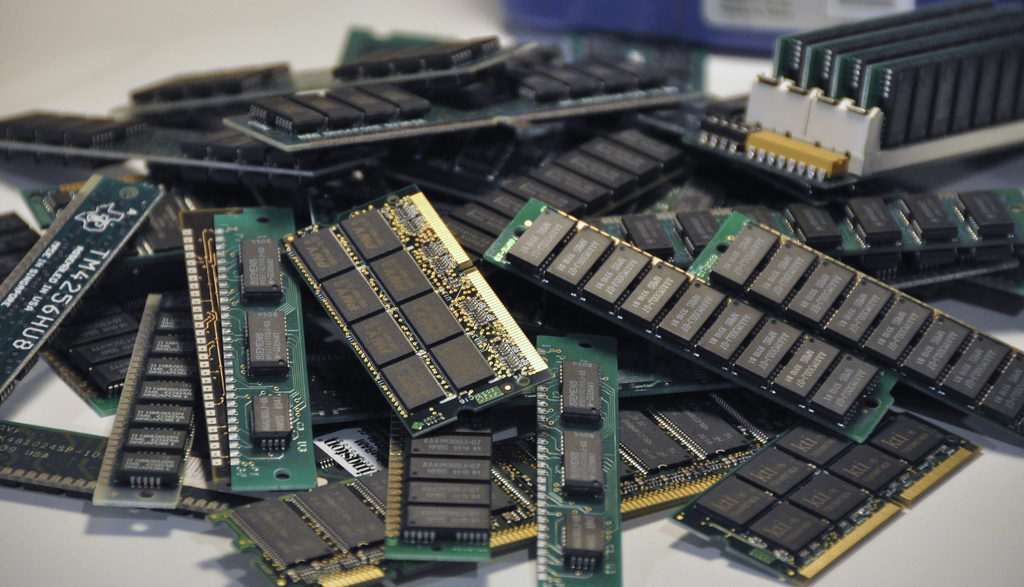Researchers create ‘Universal’ memory as fast as RAM, could be basis for new types of non-volatile memory
Researchers create ‘Universal’ memory as fast as RAM, could be basis for new types of non-volatile memory

In what could be a ground-breaking development in the future of Resistive Random Access Memory (ReRAM), researchers have found a way to create a ‘Universal’ memory that is as fast as RAM and has a non-volatile storage capacity comparable to Flash.
Researchers from the Center of Shared Research Facilities at Moscow Institute of Physics and Technology (MIPT) have created “thin films” that could be the basis for creating new forms of non-volatile memory. To achieve this, they devised a method to control oxygen concentration in tantalum oxide films produced by a technique called Atomic Layer Deposition (ALD). It is vital to choose the right substances for use in ALD.
“The hardest part in depositing oxygen-deficient films was finding the right reactants that would make it possible to both eliminate the ligands contained in the metallic precursor and control oxygen content in the resulting coating,” explained Andrey Markeev, a leading researcher at MIPT. “We achieved this by using a tantalum precursor, which by itself contains oxygen, and a reactant in the form of plasma-activated hydrogen,” Markeev added in a paper published in the journal ACS Applied Materials & Interfaces.
In the last decade, ALD has become increasingly widespread, with numerous applications in nanoelectronics, optics and the biomedical industry. “In this study, we needed not just to obtain the films containing different amounts of oxygen but also to confirm this experimentally,” added Konstantin Egorov, PhD student at MIPT.
“To do this, our team worked with a unique experimental cluster, which allowed us to grow films and study them without breaking the vacuum,” Egorov stated. Once the technique passes the test in the physical environment, the way to a ‘Universal’ memory will not be far away, the team noted.

In what could be a ground-breaking development in the future of Resistive Random Access Memory (ReRAM), researchers have found a way to create a ‘Universal’ memory that is as fast as RAM and has a non-volatile storage capacity comparable to Flash.
Researchers from the Center of Shared Research Facilities at Moscow Institute of Physics and Technology (MIPT) have created “thin films” that could be the basis for creating new forms of non-volatile memory. To achieve this, they devised a method to control oxygen concentration in tantalum oxide films produced by a technique called Atomic Layer Deposition (ALD). It is vital to choose the right substances for use in ALD.
“The hardest part in depositing oxygen-deficient films was finding the right reactants that would make it possible to both eliminate the ligands contained in the metallic precursor and control oxygen content in the resulting coating,” explained Andrey Markeev, a leading researcher at MIPT. “We achieved this by using a tantalum precursor, which by itself contains oxygen, and a reactant in the form of plasma-activated hydrogen,” Markeev added in a paper published in the journal ACS Applied Materials & Interfaces.
In the last decade, ALD has become increasingly widespread, with numerous applications in nanoelectronics, optics and the biomedical industry. “In this study, we needed not just to obtain the films containing different amounts of oxygen but also to confirm this experimentally,” added Konstantin Egorov, PhD student at MIPT.
“To do this, our team worked with a unique experimental cluster, which allowed us to grow films and study them without breaking the vacuum,” Egorov stated. Once the technique passes the test in the physical environment, the way to a ‘Universal’ memory will not be far away, the team noted.
Comments
Post a Comment